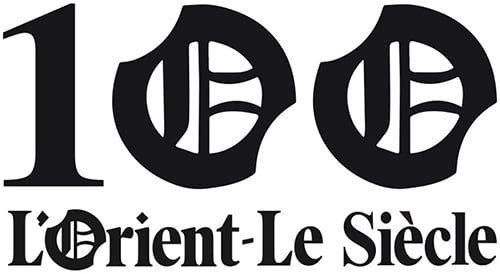Ziad Abichaker, a Lebanese entrepreneur with a passion for trash management. Photo DR
The tone is set as soon as one walks into the premises of 'Cedar Environmental'; the engineering firm founded in 1999 by Ziad Abichaker in Beirut's suburbs: grids and a balcony made out of recycled bottles, floors made up of recycled tires (produced by a Lebanese factory), chairs lined with the firm's leading product; 'ecoboard', made of inert waste. Everything here has been repurposed...
Ziad Abichaker, an engineer, discovered the 'zero-waste' philosophy while studying in the United States, during one of the courses he took at Rutgers between 1989 and 1996. "This philosophy was born in this country, elaborated by academics and developed within universities and research centers," explains the 46-year-old Lebanese citizen. "They were the first to refuse waste-dumping and incineration."
This approach hasn't fallen on deaf ears. Back at the beginning of the 90s, Ziad Abichaker, along with his young colleagues in the United States developed a "dynamic composting" technique; for the transformation of organic waste into compost, a soil enricher. Labeled "dynamic", this technique allows waste to be composted much faster than with more traditional methods, thanks to a machine created especially for this task. "I carried on my research once back in Lebanon," he adds, by then having built multiple composting factories.
Once this organic waste issue has been resolved (organic waste makes up at least 50% of Lebanese trash depending on the region), and the recyclable trash sorted and separated, we are left with inert waste; which we can't do anything about. "We noticed that the majority of this inert waste was plastic bags and wrappings, trivial objects, most of them of one-time-usage, and which cannot be recycled," explains Abichaker. "After lengthy research we came up with the 'ecoboard', recycled panels."
'Ecoboards' are compressed and very resistant panels, made up of inert waste, which is first broken up, treated and mixed (in a particular manner, a house-kept secret) and later compressed. Every panel contains on average more than 3,500 plastic bags, usually collected in the sorting plants managed by Ziad Abichaker's firm. "Ecoboards are extremely resistant materials, designed more for outdoor use," noted the engineer. "Its usages are multiple: one can make chair-backs (such as those in the offices of Cedar Environmental), table surfaces, coatings of all sorts, and even prefabricated houses." Another surprising application can be added to this list: "Ecoboards can be used as a base for green walls. One just needs to pierce holes of a certain diameter, coat the walls according to the desired surface and plant into the holes. When the plants grow, the wall will be entirely green. One true vertical garden!"
Success at municipal level
Ecological panels may not have found a mass market yet, but their potential to solve the issue of inert waste is there. The whole point of this technique, like the dynamic composting, is to integrate it into a waste-management system that Abichaker would like to see implemented throughout Lebanon's municipalities. "We have already collaborated with three municipalities to take over the complete management of their waste" he explains and adds, "in all three villages, we have proven that is it possible to avoid the use of landfills by a combination of techniques treating different kinds of waste. Regarding the 2 to 3% of waste categorized as dangerous waste, this is not commonly produced in households, but rather falls into the category of industrial or medical waste. One must also remember that a lot of waste items that were previously considered dangerous, no longer are: batteries for domestic use imported from Europe, for example, no longer contain heavy metal components since the year 2000."
The waste-management industry
Ziad Abichaker's words resonate even more in a country that has been facing, for decades now, a serious waste management problem. With the closing of its main landfill site in Naamé last July, Lebanon has passed through an eight month crisis, with streets and forests drowning in litter. According to Abichaker, "the problem is essentially political. The solution is obviously linked to decentralization and the substantial role municipalities should play. We can no longer keep on building landfills, in a country where land is rare and expensive. Those who keep on advocating centralized solutions are, in Lebanon and in numerous countries, shady groups prioritizing their own interests." The engineer makes it no secret that 'Cedar Environmental' is a firm (and not an NGO) running its own factories. "One must not lose sight of the fact that waste management is an industry, a very efficient one at local economy level, and one with significant potential for creating employment; a precious asset to a country where the unemployment rate is high." He insists: "in Lebanon, we have a recycling and transformation industry which we can count on."
(translated by Caterina Belardi)

commentaires (2)
BRAVO ! L,ETAT... JE NE SAIS LEQUEL... DEVRAIT PROFITER DE CE MONSIEUR...
LA LIBRE EXPRESSION
08 h 40, le 04 juillet 2016